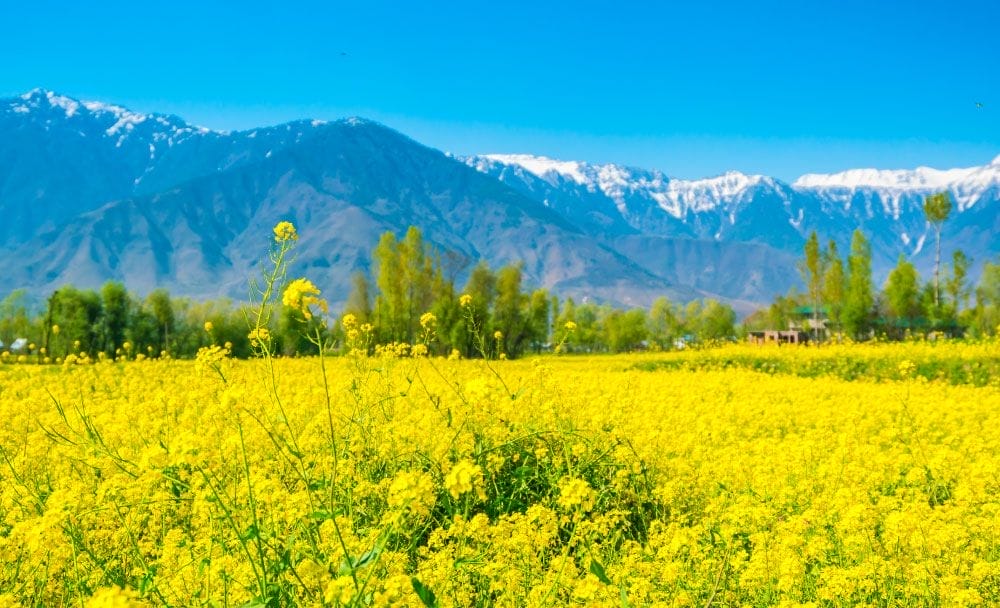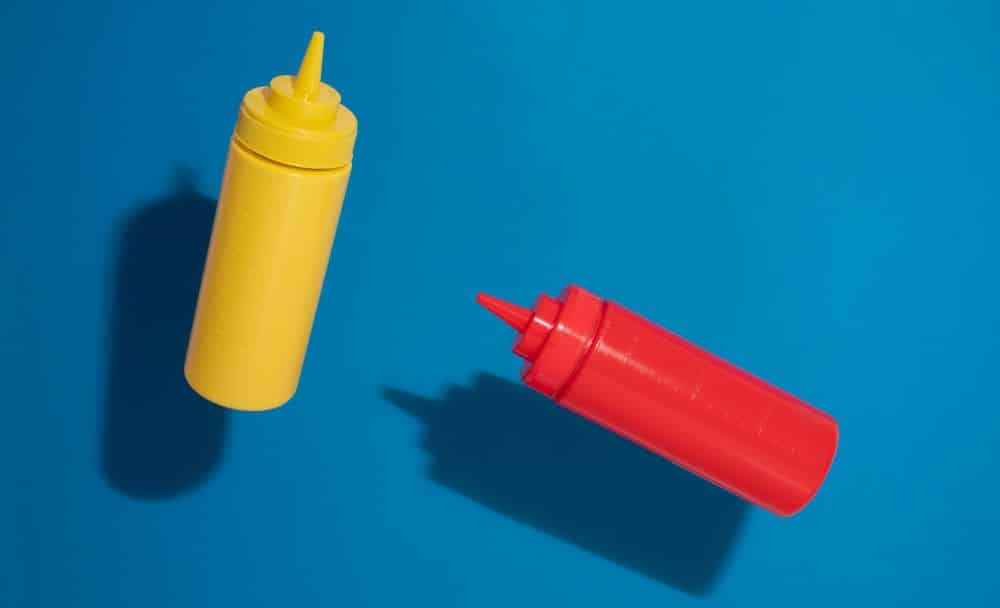
Mustard seeds, with their distinct flavor and aroma, have been used for years in culinary and medicinal practices. These tiny powerhouses of nutrition are a staple ingredient in many cuisines and offer a range of health benefits. This article explores 15 amazing benefits of mustard seeds that make them a valuable addition to your diet and wellness routine. Let’s unlock the potential of mustard seeds and harness their goodness for a healthier and more vibrant life.
Nutritional value of mustard seeds
Here’s the nutritional value per 100 grams of mustard seeds: [1]
| Name | Amount |
|---|---|
| Dietary fiber | 14.7 g |
| Protein | 24.94 g |
| Vitamin A | 3 μg |
| Calcium | 521 mg |
| Iron | 9.98 mg |
| Magnesium | 298 mg |
15 Mustard Seeds Benefits you Must Know
Here are 15 ways your health can benefit from consuming mustard seeds.
- Heart health
Mustard seeds contain omega-3 fatty acids, which have been shown to support heart health by reducing inflammation, improving cholesterol levels, and maintaining proper blood pressure. [2]
2. Digestive aid
Compounds like fiber in mustard seeds help stimulate digestion, promote bowel movements, and alleviate common digestive issues such as constipation and bloating. [1]
3. Anti-inflammatory properties
Mustard seeds contain compounds like selenium and magnesium, known for their anti-inflammatory effects. Regular consumption may help reduce inflammation in the body. [1]
4. Antioxidant powerhouse
Mustard seeds are packed with antioxidants, including flavonoids and carotenoids, which help neutralize harmful free radicals in the body. [3]
5. Weight management
Mustard seeds are high in fiber, making them a great addition to a weight management plan. They promote feelings of fullness, regulate appetite, and aid in maintaining a healthy weight. [1]
6. Bone health
Minerals like calcium, magnesium, and phosphorus in mustard seeds contribute to bone health. [1]
7. Auriculotherapy
Female college students who had white mustard seeds applied on their auricular acupressure points for a duration of four weeks showed a decrease in their body weight and body mass index (BMI). [2]
8. Boost skin conditions
Mustard seeds have antifungal properties that prevent skin diseases. A body massage with mustard oil is often recommended. [1]
9. Immune support
Mustard seeds are a rich source of vitamins A, C, and K and antioxidants, which play a vital role in supporting a strong immune system and defending against infections. [1]
10. Gum strengthening
If you are suffering from unhealthy gums, use mustard oil with salt and alum for quick relief. [1]
11. Joint pains
When mixed with garlic and turmeric, mustard seeds are an effective remedy to cure joint pains. [1]
12. Nervous system health
Mustard seeds contain essential nutrients like folate and niacin, which are important for maintaining a healthy nervous system and supporting cognitive function. [1]
13. Antimicrobial properties
Mustard seeds possess natural antimicrobial properties thanks to compounds like allyl isothiocyanate. They may help fight off harmful bacteria and inhibit the growth of foodborne pathogens. [1]
14. Anti-aging benefits
The antioxidants in mustard seeds help combat free radicals, protecting the body from premature ageing and promoting a youthful appearance. [1]
15. Nutrient Powerhouse
Mustard seeds are a good source of essential nutrients, including iron, manganese, zinc, and vitamin E, which support overall health and well-being. [1]
How to consume mustard seeds
Incorporating mustard seeds into your daily routine is a wonderful way to enjoy their numerous health benefits. Here are some ways to consume mustard seeds:
- Whole seeds
One of the easiest methods is to consume whole mustard seeds directly. You can munch on a small handful of seeds as a quick snack or sprinkle them on top of salads, soups, or stir-fries for added crunch and flavor.
- Ground mustard
Mustard seeds can be ground into a fine powder known as mustard powder. This powder can be used as a seasoning in cooking or as an ingredient in homemade salad dressings, marinades, or sauces.
- Mustard oil
Mustard seeds are commonly pressed to extract their oil, which is widely used in cooking. Mustard oil has an intense flavor and can be used for sautéing, stir-frying, or as a base for marinades and dressings.
- Mustard paste
To create a zesty condiment, make your mustard paste using mustard seeds. Soak the seeds in water or vinegar, then grind them to form a smooth paste. This homemade mustard paste can be used as a spread, a dip, or an ingredient in various recipes.

- Pickled mustard seeds
Pickling mustard seeds is another popular way to enjoy their unique flavor. These tangy and slightly spicy seeds can be used as a dish garnish or added to sandwiches or wraps.
The intensity of the flavor in mustard seeds can vary depending on how they are consumed. Whole seeds taste milder, while ground mustard or mustard paste delivers a more potent flavor. Start with smaller quantities and gradually adjust according to your taste preferences.
FAQs about Mustard Seeds
1. What is a mustard seed plant?
The mustard seed plant, scientifically known as Brassica, is a member of the Brassicaceae family. It is an annual flowering plant that produces small, round seeds commonly used as a spice in cooking.
2. What are the benefits of mustard seed sprouts?
Mustard seed sprouts contain nutrients, including vitamins A, C, and K, and minerals like calcium, iron, and magnesium. They are known for their high antioxidant content and may support digestion, enhance immunity, and promote healthy skin. [1]
3. What are the benefits of mustard seed water?
Mustard seed water is often used as a remedy for various health conditions. It is believed to aid digestion, alleviate respiratory congestion, boost metabolism, and promote detoxification. [1]
4. What are the benefits of mustard seeds for diabetes?
Mustard seeds have usually been employed in the treatment of non-genetic diabetes. However, it’s important to manage diabetes under the guidance of a healthcare professional and incorporate mustard seeds as part of a balanced diet. [5]
Conclusion
From promoting heart health and aiding digestion to supporting weight management and providing antioxidant protection, these tiny seeds offer many advantages that can positively impact your overall well-being.
Incorporating mustard seeds into your diet can be as simple as sprinkling them on salads, using them as a seasoning in cooking, or enjoying them as mustard paste or oil. The versatility allows you to experiment and find the most convenient way to reap their benefits.
However, it’s important to remember that individual allergies to mustard seeds may exist, so exercise caution and consult a healthcare professional if you face any concerns.
Disclaimer:
The information provided here is not intended to replace professional advice or treatment.
References:
- Rapeseed and Mustardf 978-3-659-91833-9
- Glucosinolates and Omega-3 Fatty Acids from Mustard Seeds: Phytochemistry and Pharmacology. 1 September 2022
- Antioxidant activity of different parts of Dolsan Leaf Mustard. 31 October 2016
- Use of Mustard Seed Footbaths for Respiratory Tract Infections: A Pilot Study. 24 January 2020
- Chapter 25 – Indian Mustard (Brassica juncea L.) Seeds in Health.


















